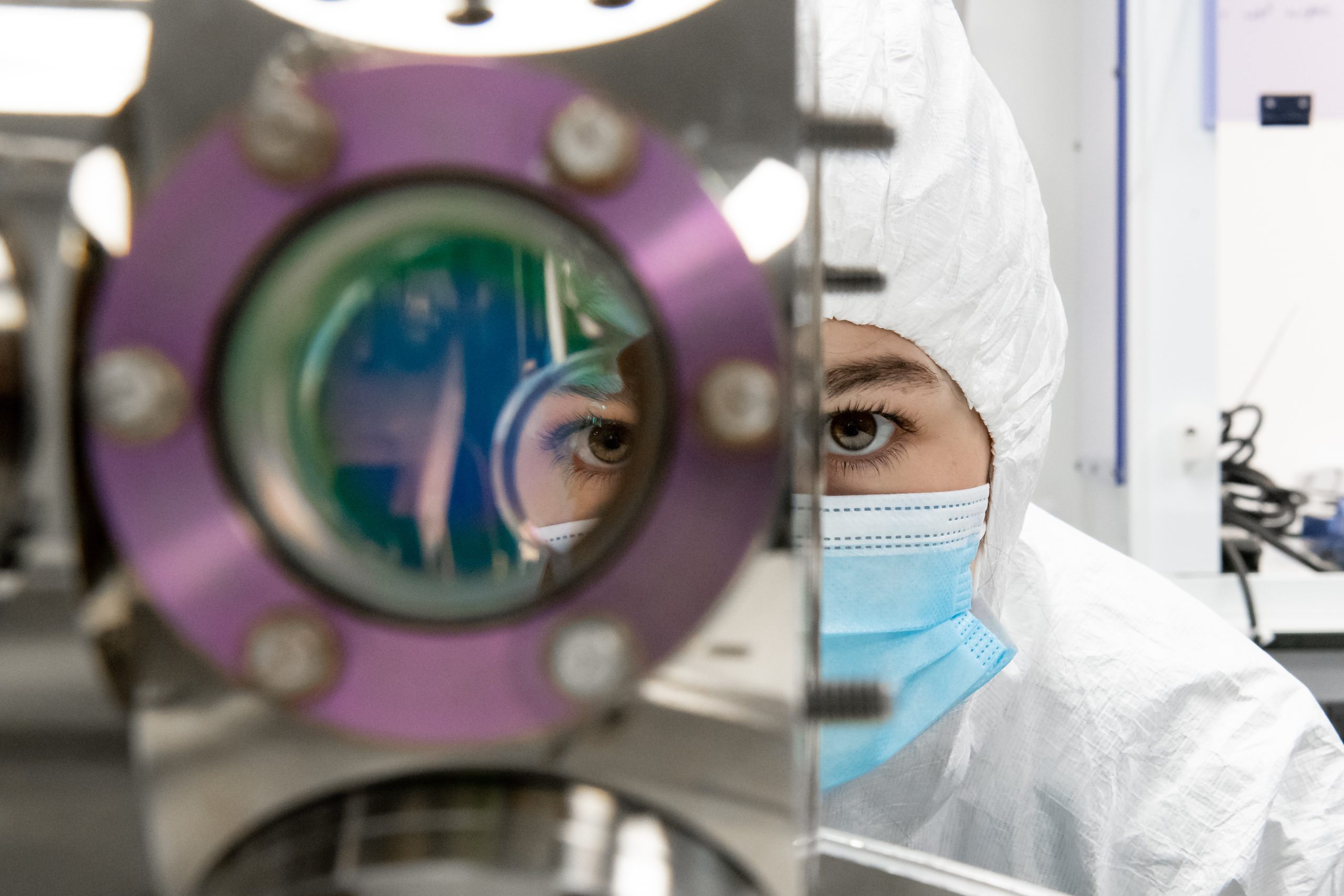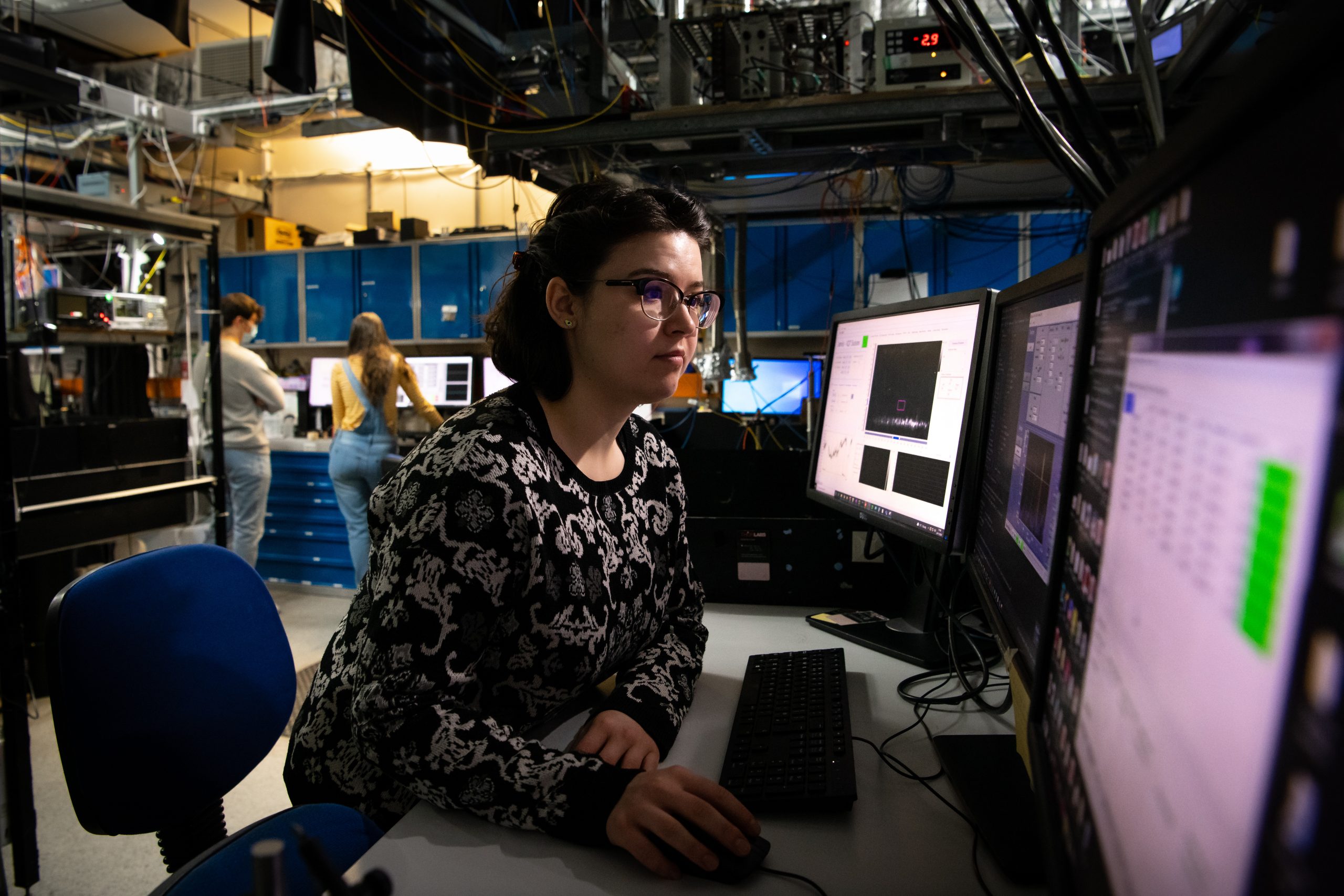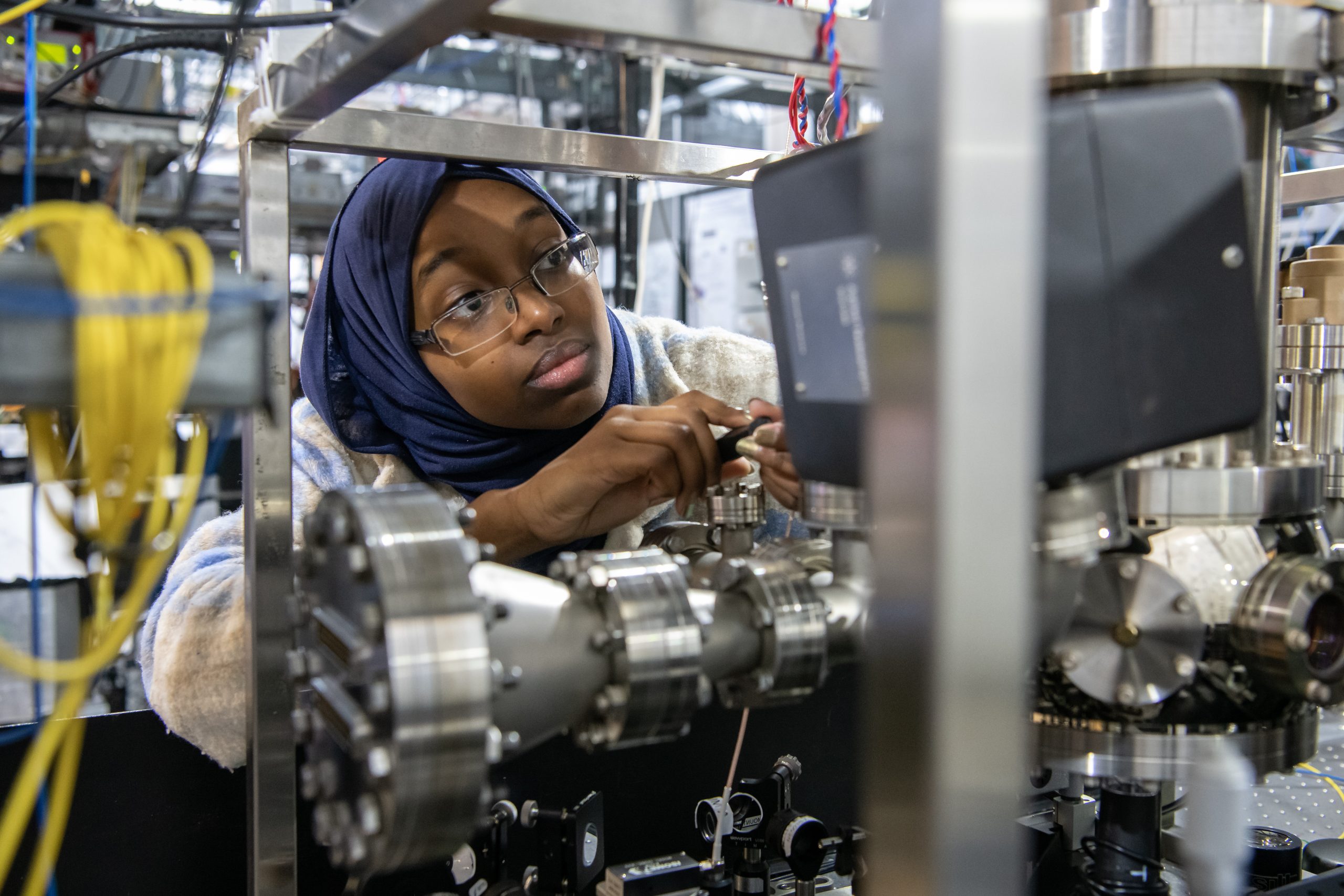Meet our students
Cohort 1
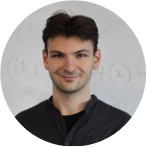
Rares Barcan
Rares is an MSc graduate from the University of Strathclyde, attracted by the mystique that surrounds quantum mechanics. His background is a mixture of both theoretical and applied physics, beginning with relativistic stars before settling down with studying the realm of quantum, on his final project on coherent control of spin-based qubits from pyramidal quantum dots. He aims to make great progress in his understanding of quantum behaviour during the QIST CDT program at the University of Sussex, on ion traps and quantum computing. Rares has a tendency to get lost in the art of traveling to explore the unknown; however, in the last few months, he’s been more focused on his research and has spent most of his time in the lab. When he’s not engaged in lab work, he enjoys reading graphic novels and visiting the movie theatre.
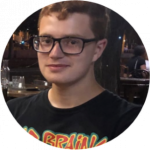
Sebastien Bisdee
Sebastien graduated from the University of Bristol with a master’s degree in physics with industrial experience. During his time studying he worked at Malvern Panalytical, where he worked on using classical optics to characterise various materials – giving him a love for experimental bulk optics. In his master’s project he worked on a novel imaging technique with QET labs, which involved using a digital micromirror device (DMD) and a bucket detector to image magnetic fields to ultra-high sensitivity, without the use of a conventional camera. This has given him an interest in quantum imaging and measurement, which he would like to build upon within the CDT. Outside of physics, Seb enjoys reading history, listening and playing music, and comedy.
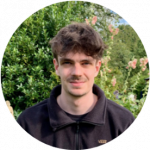
Joshua Blake
Josh graduated from the University of Exeter in 2024 with a BSc in Computer science. His final year dissertation was on evaluating multiple quadratic unconstrained binary optimization formulations of the quadratic knapsack problem with the quantum approximate optimization algorithm. Josh is interested in tackling big and complex computational problems and is particularly interested in what quantum computers have to offer in this domain, especially with optimization. Through this CDT, Josh is looking forward to exploring the vast disciplines of quantum information and is excited to dip his toes into the experimental and practical side of quantum technologies. Outside of studies Josh enjoys playing music, climbing and noodles.
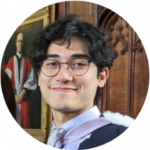
Caleb Burham
Caleb graduated from University College London with an MSc in Physics, having completed a bachelors in Philosophy and Physics at the University of Durham. His masters project focused on creating a useful self consistent set of rovibronic energy levels for molecular iodine by constructing spectroscopic networks using existing transition data. Despite having a mostly theoretical background, specialising in atomic and molecular physics, Caleb aims to use the CDT to help gain the necessary experimental skills and experience to conduct useful quantum technology research in the lab. He is looking forward to group work in the CDT with students that have a wide range of specialisations. Outside of academics Caleb enjoys live music, playing the guitar and reading.
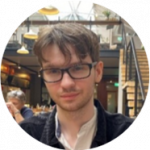
Joshua Burns
Joshua, a theoretical physics MSci graduate from the university of Nottingham. His masters project used mathematical modeling and computer simulation to gain insight into the physical characteristics of a novel memristive device in an effort to understand how this device functioned. He is excited to take advantage of the broad developmental opportunities offered by the QIST-CDT to become a competent multifaceted researcher. His particular interests in physics are quantum sensing and quantum computing, and more generally utilizing fundamental phenomena and all things symmetry. In his personal time, frequently can be found reading, cooking or going on walks.
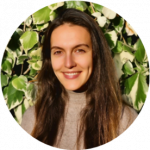
Ashleigh Fletcher
Ashleigh graduated from the University of Manchester in 2020 with a master’s in astrophysics. Her final year project was focused in particle cosmology, and investigated a theoretical and computational model of efficient fermion production in an expanding early universe. During her third year, she studied at Rutgers University, where she carried out a project in the field of quantum computation, which tested Grover’s algorithm on IBMQ’s 5-qubit computer. Since graduating, she has widened her abilities and experience through travelling and working in diverse roles, from involvement with technology companies to construction sites. She has a strong interest in quantum theory, as well as the intersection of quantum physics with computer science, such as areas like quantum algorithms and cryptography. She is also excited to explore new areas such as the engineering of quantum devices in the first year of training. Outside of academics, Ashleigh enjoys spending time in nature, reading, playing guitar and live music.
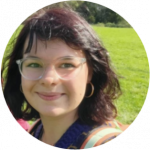
Isobel Jager
Isobel graduated from the University of Bath in 2024 with a BSc in Physics. She took her final year project as an opportunity to follow her passion for outreach by creating a public engagement display for the photonics department in collaboration with the u-Care research project. In addition to outreach, Isobel discovered her interest in experimental work through a research internship in the MRI lab at the University of New Brunswick. She looks forward to developing her practical skills as well as learning more about quantum systems in the CDT and is particularly excited to delve into quantum photonics and quantum networks. Outside of Physics, Isobel enjoys discovering new music at gigs, crocheting, and spending time outdoors.
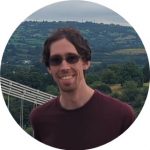
Joseph McElroy
Joseph completed the MSc in Optoelectronic and Quantum Technology at the University of Bristol in 2024. Previously, he completed a BSc in Electrical Engineering, a BA in Russian, and a BA in Music Studies, all from the University of South Florida. His MSc thesis is an examination of aluminum nitride metasurfaces on sapphire for linear-to-circular polarisation conversion. His main research aim is to contribute to the development of quantum computers for aiding in AlphaFold-like medical research. Outside of academia, he enjoys reading, playing weiqi/go, and all kinds of exercise ranging from skateboarding to dance.

Chazi Mwale
Chazi graduated from UCL in 2023 with an MSci in Natural Sciences, specialising in quantum computing and particle physics. He simulated neutrino mass measurement via quantum technologies for his MSci project. Alongside his undergraduate studies, he completed a research fellowship at the University of Cambridge in 2022, where he investigated the efficacy of Hamiltonian engineering in realising spin-dynamic Hamiltonians that describe qutrit systems. An interdisciplinary framework allowed Chazi to fulfil his goal of providing access to STEM education for students from socioeconomically challenged backgrounds similar to himself, possessing eight years’ experience working as a dynamic mathematics and science educator in his local community, schools and online. His hobbies include travelling, sports, anime and reading. He aims to bring science education to various parts of the world whilst simultaneously having wacky adventures.
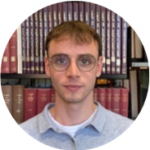
Finn O’Dwyer
Finn has finished his MPhys specialised in Quantum Tech at the University of Sussex, where he has now started his research career at the QIST CDT. During his undergrad, he took a year out to work in software development at Testia, a company owned by Airbus, and then in cyber security engineering at Equip Aero, both of which were in France. His master’s thesis explored the classical and quantum dynamics of diabatic ion transport on a surface trap. His thesis found velocity profiles which minimised the motional excitation of the ion after the transport procedure, with the wider aim of building a large-scale ion trap Quantum Computer. He is now continuing his experimental research in Quantum Computing, looking at ways to implement new methods to minimise motional excitation and increase cooling rates.

Neil Patel
Neil graduated from Imperial College London in 2023 with an MSci in Physics. For his masters thesis he undertook an experimental and computational research project where he investigated spontaneous parametric down-conversion (photon pair generation) in metasurfaces and dielectric thin films. He is looking forward to embracing the interdisciplinary culture of the CDT and furthering his skills in simulation and modelling via modules and exploratory projects. Beyond academia, he enjoys playing hockey, running and spending time with friends.

Moriah Sanusi
Moriah graduated from Imperial College London in 2024 with an MSci in Physics. Her master’s project focused on developing an algorithm to automate the detection of transition lines and interdot charge transitions on charge stability diagrams, aiding in the autotuning of spin qubits in silicon semiconductor devices. Her current research interests lie in quantum computation and quantum information and she is eager to deepen her knowledge and skills in these areas through the CDT. In 2022, Moriah had the opportunity to teach physics to Year 10 and Year 12 students at an all-girls school once a week for a term, allowing her to share her passion for physics with the younger generation. She is looking forward to continue pursuing this passion through the CDT’s outreach activities. Beyond physics, she enjoys roller skating, painting and dancing.

Alexandru Teglas
In 2018 I traded my home in the heart of Transylvania for the verdant Wales, to pursue my dream of studying Physics. About 5 years later and an amazing journey, I graduated with a Master’s degree from Swansea University. The title of my Master’s project was “Identifying Micrometeorite Candidates Using Machine Learning”. During the project I designed and built a device infused with the power of artificial intelligence, capable of automating the search for these extraterrestrial particles. This intriguing project put me at the intersection of fields such as Astronomy, Experimental Physics, Electrical Engineering and Machine Learning. Alongside my studies I developed a passion for science outreach and pursued this interest via different avenues such as becoming a student ambassador, running social media pages for some educational initiatives such as Faulkes Telescope Project and helping with the organization of workshops such as “Stardust Hunters” or “Particle Physics Masterclass.”

Sameer Yadav
Sameer graduated from the Indian Institute of Technology, Delhi, in 2024 with an MSc in Physics, having previously earned his BSc in Physics from the University of Delhi in 2022. His MSc project focused on engineering optical tweezers for cold atom quantum technologies, where he gained hands-on experience with optical setups and dipole traps for neutral Caesium atoms. He also completed a postgraduate fellowship at IISER Pune, developing imaging techniques for single atom visualization. Sameer’s research interests lie in the experimental aspects of quantum technologies, which he intended to explore further during his time at the CDT. Eager to take leverage the various opportunities offered by the CDT particularly in entrepreneurship and project management, he looks forward to entering the industry. Outside of academics, he enjoys live music, anime, and swimming.



